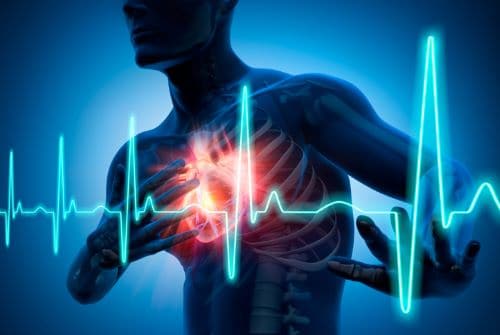The most widely used type of blood pressure drug may do more harm than good for your heart, according to a major new study.
A research team led by Pennsylvania State University looked at L-type calcium channel blockers (LCCBs). These include verapamil (Calan, Isoptin) and diltiazen (Cardizem).[1]
LCCBs work by keeping excessive calcium from entering blood vessel cells. Too much calcium causes the vessels to become thick and stiff, which raises blood pressure.
But the researchers found that LCCBs also cause a type of protein called stromal-interacting molecules to become overactive. This thickens blood vessels. So the very damage the drugs prevent by one mechanism, they cause to happen with another.
Other hypertension medications do not have this effect.
On top of that, the researchers found that LCCBs are linked to heart failure and could worsen the vascular damage caused by COVID-19.[2]
5 Natural Alternatives to Lower Blood Pressure
If you are taking an LCCB and have heart failure or are at risk for it, talk to your doctor about switching to a different medication. A diuretic may be your best alternative. They are an older class of drugs that have a better side effect profile than some of the newer medications.[3]
Better yet, try to lower your blood pressure using one or more of these five natural solutions. They may allow you to avoid taking any hypertension drugs.
- CoQ10. It’s a naturally occurring enzyme. It contains antioxidants that lower blood pressure. CoQ10 has no known side effects. The Mayo Clinic recommends up to 360 mg daily. It takes about eight to 12 weeks to see a fall in blood pressure.
- Vitamin D. A study published in the journal Lancet Diabetes & Endocrinology found that the sunshine vitamin reduces blood pressure. And a study at Augusta University in Georgia found that people taking 4,000 IUs of vitamin D daily reduced their arterial stiffness by over 10% within 16 weeks. Take the D3 form of the vitamin for best results.
- Hibiscus tea. In a study at Tufts University, participants who drank three cups of a hibiscus tea daily lowered their systolic (the upper number) blood pressure by seven points. That is comparable to the effect of prescription medications.
- Dark chocolate. A Harvard study found that eating a small square of dark chocolate daily helps lower blood pressure. The flavonoids in chocolate cause blood vessels to open wider. Make sure you stick to dark chocolate with at least 60% cacao content.
- Flaxseed. This might be the king of natural blood pressure solutions. Canadian researchers found that subjects who ate 30 grams of flaxseed a day for six months lowered their systolic readings by 15 points on average. Their diastolic readings dropped by seven points. The researchers found that flaxseed’s high alpha-linolenic acid content caused the drop.
Add flaxseed to a salad, smoothie, or protein shake. Make sure you grind up the seeds. If you don’t, your body won’t absorb the nutrients. A coffee grinder or blender works well.
Nearly half of American adults have high blood pressure. Nature—not Big Pharma—offers them the safest solutions.[4]
Editor’s Note: Air Force fighter pilots discovered a simple trick to lower their blood pressure without drugs or strenuous exercise. Read about this surprisingly effective hypertension solution in our monthly journal Independent Healing. It’s your best source for unbiased, evidence-based solutions to the most common health problems.
Related Articles
Before You Take a Blood Pressure Drug, Do This
Why Blood Pressure Drugs Are Dangerous for Seniors
Coronavirus: What You Should Know About These Blood Pressure Drugs
Like this Article? Forward this article here or Share on Facebook.
[1]https://www.ncbi.nlm.nih.gov/pmc/articles/PMC5384371
[2]https://medicalxpress.com/news/2020-07-l-type-calcium-channel-blockers-contribute.html
[3]https://www.webmd.com/hypertension-high-blood-pressure/news/20021217/diuretics-best-for-high-blood-pressure#1
[4] https://www.cdc.gov/bloodpressure/facts.htm

